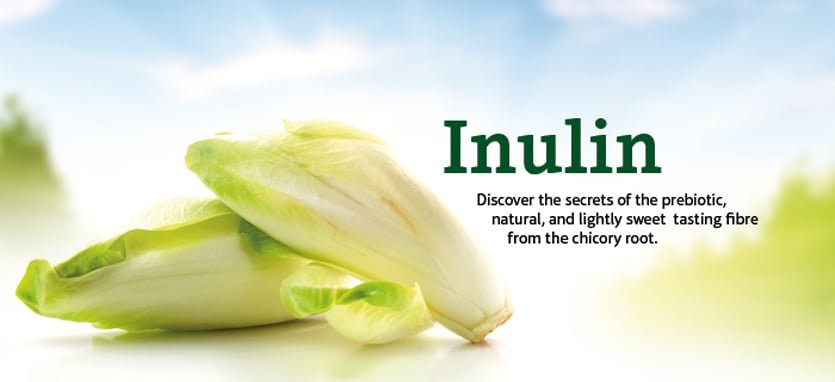Inulin is a type of dietary fiber that belongs to a class of compounds known as fructans. It is naturally present in a variety of plants, such as chicory roots, artichokes, and dandelion roots. In recent years, inulin has gained popularity as a functional food ingredient due to its potential health benefits. Here is an overview of the key aspects of inulin:
- Dietary Fiber Content:
- Soluble Fiber: Inulin is classified as a soluble fiber, which means it dissolves in water to form a gel-like substance. Soluble fibers are known for their ability to help regulate blood sugar levels and lower cholesterol.
- Prebiotic Properties: Inulin is considered a prebiotic fiber because it serves as a substrate for beneficial bacteria in the gut. It promotes the growth and activity of probiotics, particularly bifidobacteria, which contribute to a healthy gut microbiota.
- Digestive Health:
- Improved Bowel Regularity: Inulin has been associated with improved bowel regularity by adding bulk to the stool and promoting healthy bowel movements. This makes it a valuable component in promoting digestive health and preventing constipation.
- Blood Sugar Regulation:
- Low Glycemic Index: Inulin has a low glycemic index, meaning it has a minimal impact on blood sugar levels. This property makes it beneficial for individuals with diabetes or those looking to manage their blood sugar.
- Weight Management:
- Appetite Regulation: Inulin may help with weight management by promoting a feeling of fullness and reducing overall calorie intake. This can be beneficial for individuals looking to control their weight.
- Bone Health:
- Calcium Absorption: Some studies suggest that inulin may enhance the absorption of calcium in the intestines, potentially contributing to better bone health. Increased calcium absorption can be particularly important for individuals at risk of osteoporosis.
- Potential Prebiotic Effects:
- Gut Microbiota: Inulin serves as a substrate for beneficial bacteria in the colon, promoting the growth of probiotics. A balanced and diverse gut microbiota is associated with various health benefits, including immune system support and the synthesis of certain vitamins.
- Food Applications:
- Food Ingredient: Inulin is often used as a food ingredient, adding fiber content to a variety of products such as cereals, bread, yogurt, and functional beverages. It can also be used as a fat or sugar replacement in certain formulations.
- Potential Challenges:
- Gas and Flatulence: Some individuals may experience gas or flatulence when consuming inulin, especially when introduced to the diet in large amounts. Gradual incorporation into the diet can help minimize these effects.
In conclusion, inulin is a versatile dietary fiber with potential health benefits, particularly for digestive health, blood sugar regulation, and weight management.
- Dietary Fiber Content:
Inulin®

